Like all growing things, chickens need proper nutrition too. It is necessary to understand what to feed chickens as they grow. From being a chick to becoming an egg-laying hen or broiler. Are you new to raising chickens? If you are, then you’ve come to the right place.
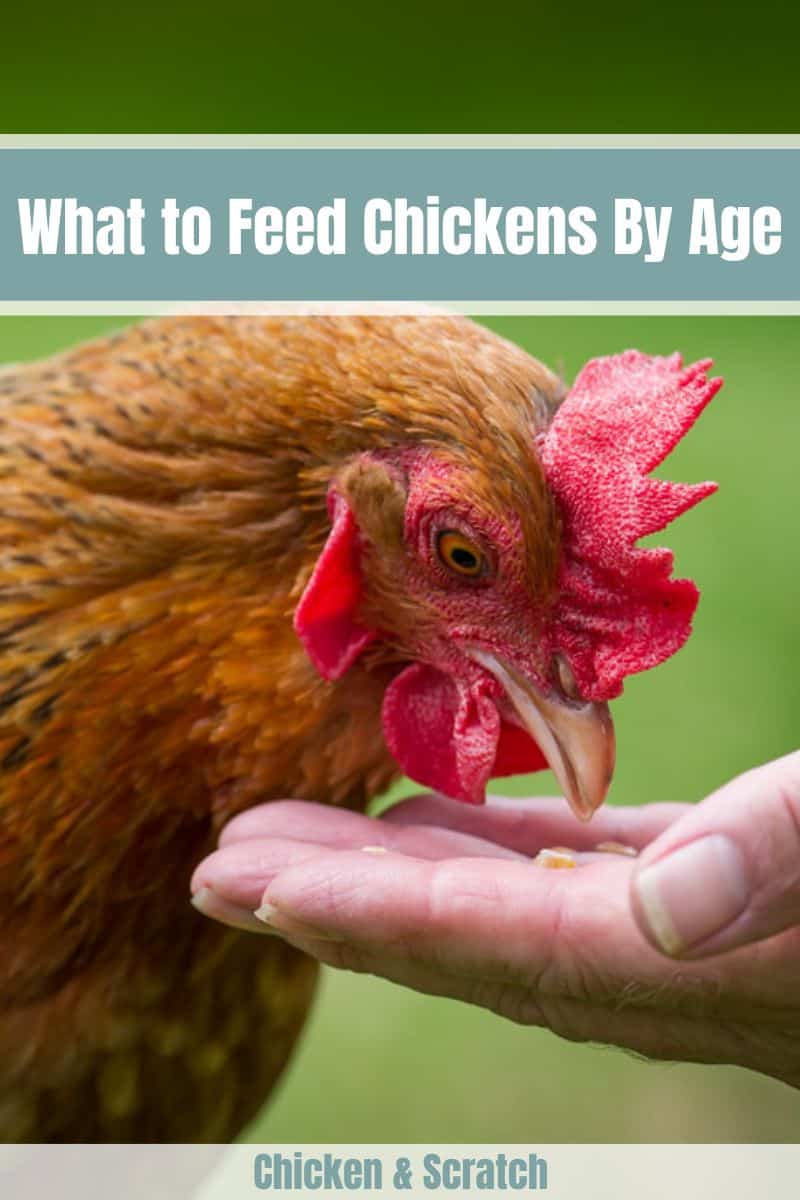
In this blog, we will explain age-specific nutrition for chickens. Plus, the different types of feeds and the importance of water.
Understanding Age-Specific Nutrition for Chickens
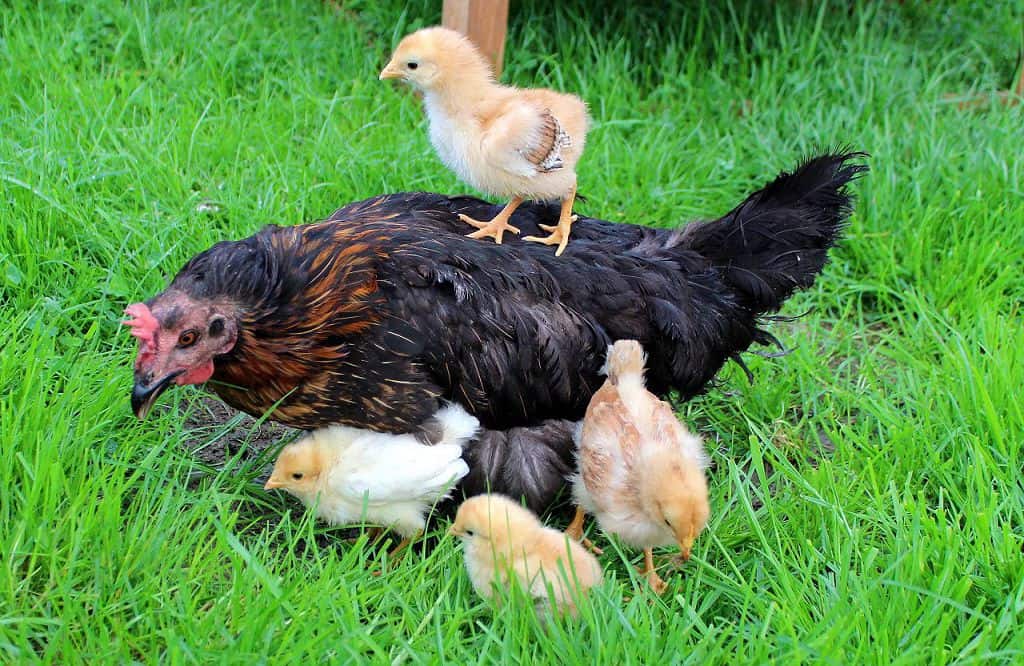
When we grow older, there are necessary nutrients we need to take to sustain our bodies. Calorie intake changes, nutritional demand shifts, and weight gain. These are some of the growth we share with the flocks. With that said, you know how important it is for chickens to get a proper diet to meet their nutritional need.
Most formulated feeds contain the amount of nutrition needed based on the age of the chicken. Mixing your own is also welcome if you love to engage better during the feeding process. But remember to take into consideration the nutrition need. Here is the list of the essential ingredients present in most feeds:
- Energy (carbohydrates, fat, and protein)
- Amino acids
- Vitamins
- Macro- and micro-minerals
The wrong balance of nutrients can cause several health problems. Reduced growth, mobility issues, and becoming egg-bound are problems we want to avoid. Provide the age-specific diet for your chicken. And you’ll receive bountiful, healthy eggs and chickens.
Feeding Baby Chicks
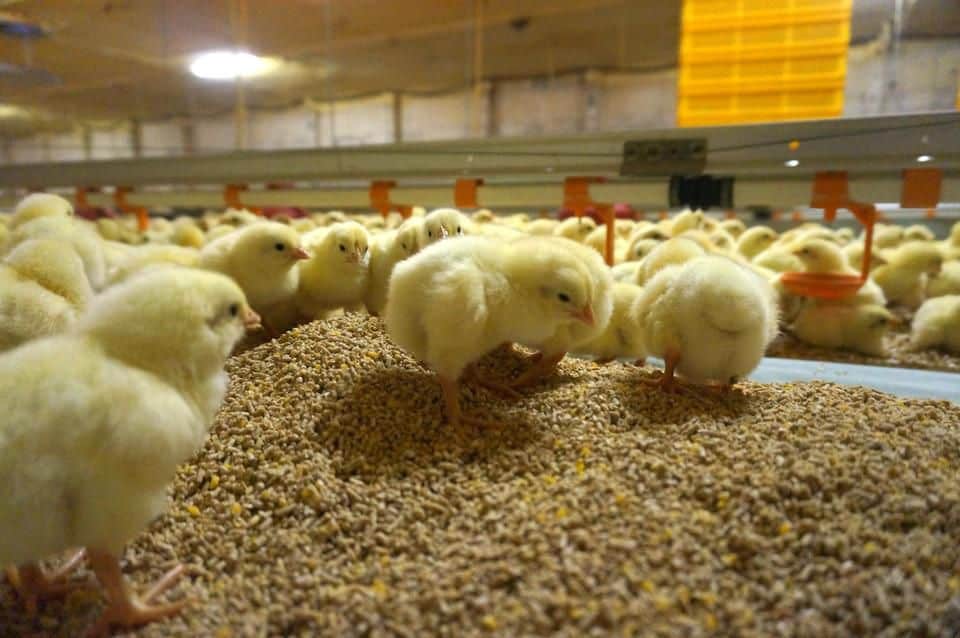
Newly hatched eggs up to 8 weeks old are baby chicks.
Baby Chick Nutritional Need
Jumpstart the growth of your baby chicks with the appropriate nutritional need. Newly-hatched chicks absorb nutrients from the egg yolk to provide them nutrients. IIts absorption only lasts for the first 24 hours. After that, you should provide feeds and water.
Chicks need amino acids, vitamins, and other nutrients, to support bone health and development. Adding at least 18% to 20% protein to feeds is also crucial at this stage to promote muscle growth and strength. Calcium, conversely, is not that necessary for baby chicks. Too much of it can cause hastened bone growth, leading to weaker bones in the future.
Chick Starter Feed
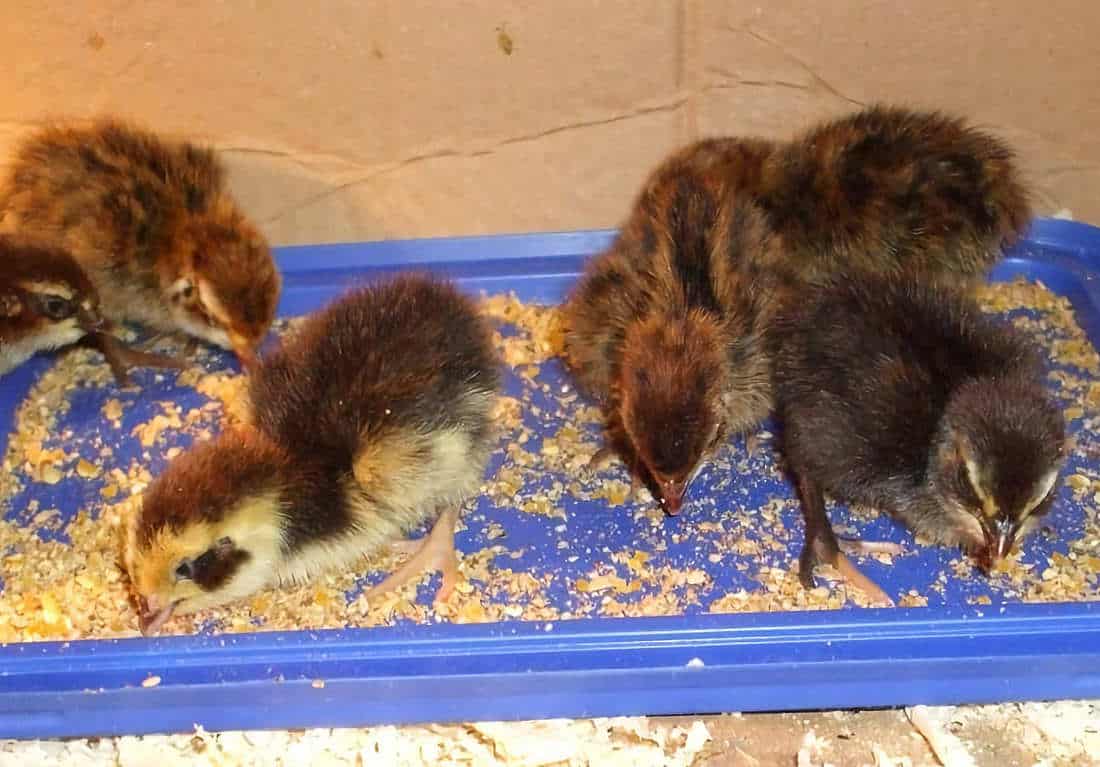
Starter feed or chick starter holds essential nutrients for growing chicks. It is protein-dense, playing a significant role in many biological factors like immunity. Generally, it is quintessential to buy an organic starter feed that is whole grain and non-GMO.
There are two types of starter feed: medicated and unmedicated.
- Medicated chick starter – contains coccidiostat, an anti-protozoal, too. But, avoid giving this to chicks who’ve had a vaccination against the said disease.
- Unmedicated chick starter – does not contain a coccidiostat. Although, it puts your chicks vulnerable to coccidiosis.
Baby chicks eat anything they see on the ground. Isn’t it obvious when they peck your finger without hesitation? With that said, you have to maintain the cleanliness of their surrounding. Peanuts, avocados, and moldy bread are some foods you should avoid giving them.
Besides the starter feed, chicks should have access to clean water day and night. Water helps them digest their food, and it’s good for metabolism. But don’t expect them to know how to drink! Gently dip the beak of a few chicks in the water. If a couple of chicks learn to drink, the rest of the flock will follow. Chicks drink more than they eat, so be on the lookout for constant cleaning and refilling.
Feeding Growing Chicks
Chicks from eight to 16 weeks old are considered growing chicks, also called pullets (female) or cockerels (male).
Growing Chicks Nutritional Need
Another month has passed. Your chicks are growing faster with more developed layers of feathers. It also means a modified nutritional need for them. Growing chicks need less protein, around 16% to 18%.
As chicks mature, their body focuses more on maintenance than building tissues. Remember that chickens can only store an ample amount of protein. Too much of it may cause kidney or liver problems in chickens. And like any stage, growing chicks need essential amino acids, vitamins, and minerals.
Grower or Developer Feed
Grower feed provides vital nutrients without barraging your chickens with unneeded nutrients. It also helps support the continuous growth of the chick, thus the name grower or developer. In a nutshell, it has a lower nutrient composition compared to a starter feed. The standard need of nutrients for a grower feed is the following:
- 16% protein
- 8% fiber
- 8% calcium
- 6% phosphorus
- 2600 energy K/ca/kg.
- 7 lysine
- 25 methionine
Do you have an excess starter feed? Do not throw it away just yet. You can mix it with grower feeds (half and half) for a few weeks to avoid spoilage.
Grit and Calcium
Do you wonder how chicken digest their food despite not having teeth? The answer is their gizzard with the help of grit. Imagine gizzard as an industrial machine and grit (sand and stones) as the shredder blade. Once the grains and fiber go into the stomach, the gizzard uses grit to grind the food, aiding digestion. It also explains why chickens always peck on the ground after eating.
But what about calcium? Does it also support the digestive system? Yes! Including the nervous system, circulatory system, and cardiac system. Calcium prevents blood clotting, helps activate enzymes, and ensures proper bone development. But one of the most important roles of calcium is during the formation of eggshells, which we will further discuss later. So keep reading!
Feeding Adult Laying Hens
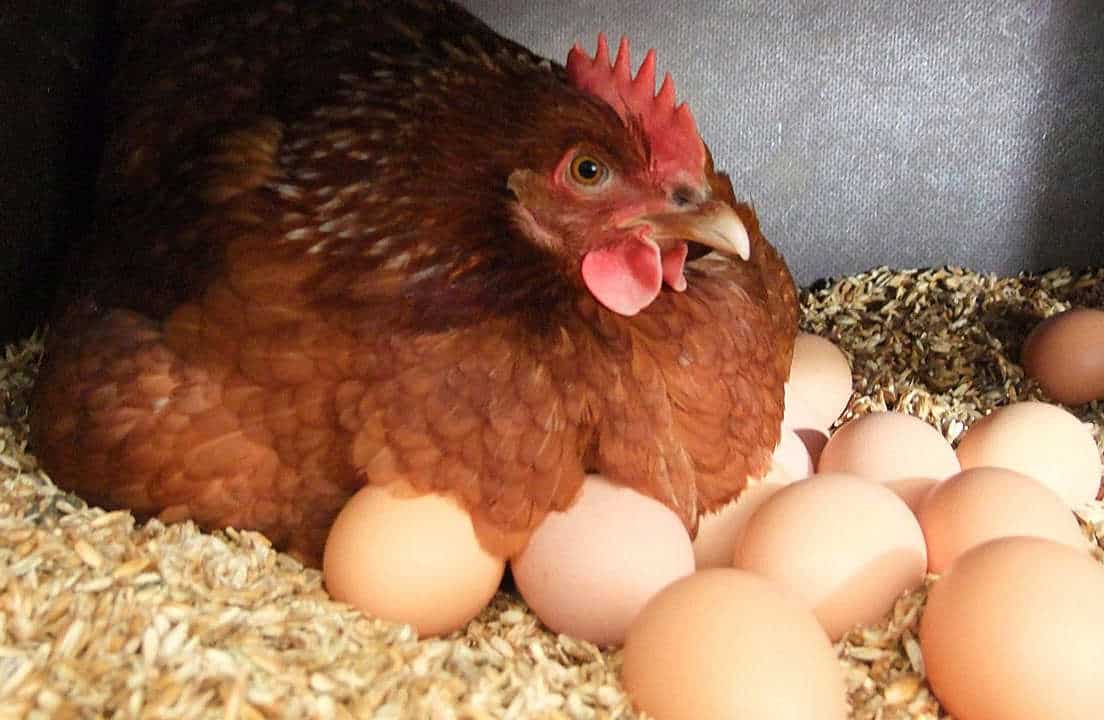
Chickens that are 16 weeks old and beyond (or when they start laying eggs) are considered adult chickens.
Laying Hens Nutritional Need
Congratulations! Your hens are now laying eggs. Is the egg a good size? Are the shells smooth without cracks? The characteristics of the eggs can tell you if your hens are getting proper nutrition. At this stage, hens should receive a good amount of calcium, salt, and phosphorous. These minerals not only contribute to eggshell formation but also to proper bone formation.
Layer Feed
Now that your hens are laying eggs, it’s time to transition from starter-grower feed to complete or layer feed. This type of feed contains a higher amount of calcium, around 4%. But remember only to feed these to laying hens to avoid kidney problems and egg production issues. On average, egg-laying hens may consume about 0.25 pounds of layer feed per day.
Oyster Shells As Supplemental Calcium
Earlier, we mentioned how vital calcium is for the body system of chickens. About 90% of calcium makes up a single eggshell. It undergoes a repetitive cycle of usage, absorption, and conservation while producing eggs.
The best option to provide the greatest amount of calcium is to serve crushed oysters. But what makes it different from crushed eggshells and chipped limestones? Oyster shells dwell longer in the digestive tract for better calcium absorption compared to others.
Feeding Broilers
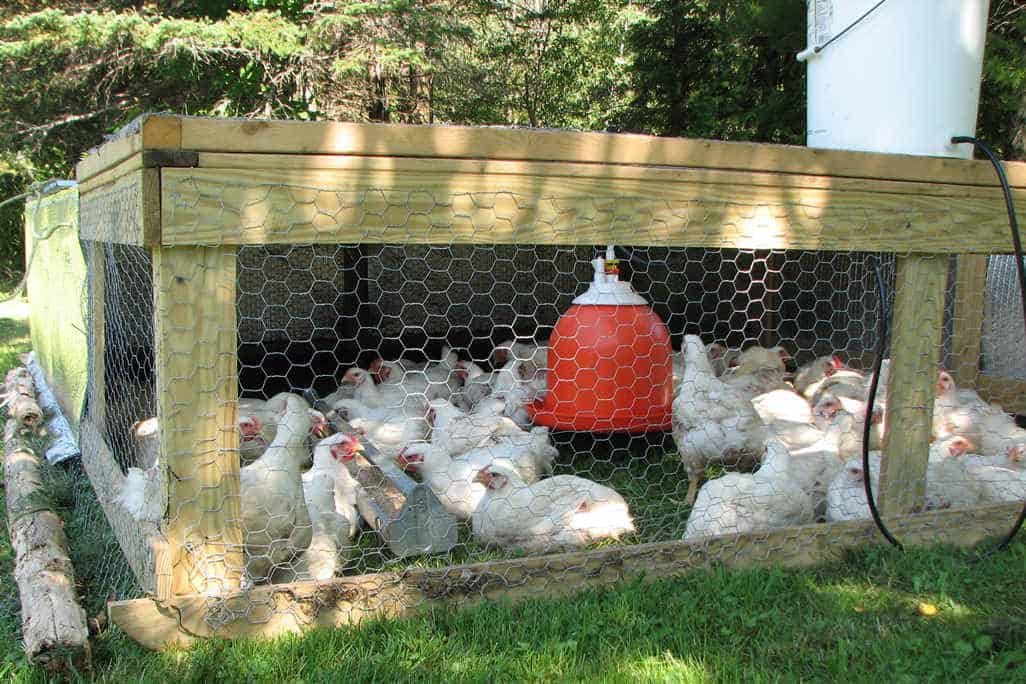
When you raise a chicken for meat, they call it a broiler. Generally, broilers are bred with optimal size and health, appealing to consumers.
Broilers Nutritional Need
Broiler chickens‘ diets often are formulated with 23% protein for starter feed and 19.5% for finisher feed. They also need nutrient energy for tissue growth, maintenance, and activity, sourced from carbohydrates like corn and wheat. Starter feeds nutrition specification needs 3,000 kcal and finisher feed with 3,200 kcal.
Broiler Feeds
Here are broiler feeds based on their age-specific nutrition need.
- Starter feed (0-10 days of age): given to establish a good appetite and maximize growth during the critical early stage of life.
- Grower feed (14-16 days): transitioning from crumbs or mini pellets into pellets. Grower feed continues to provide adequate nutrient intake.
- Finisher Feeds (25 days up to processing): like its name, it is the feed given before they butcher the broiler chicken.
Importance of Water To Broilers
Water is often overlooked when it comes to chicken care. But in fact, it is the most vital nutrient needed by commercial broilers. Here are some of the roles of water in chickens.
- It helps regulate body temperature.
- It aids in food digestion.
- It assists in waste elimination.
Provide adequate water daily. Install a nipple drinker feeder, allocating one per 10 chickens. Another thing to consider is the water temperature. Ensure that the water is below body temperature. A freezing temperature will only cause extreme thirst in chickens.
Treats For Your Chickens
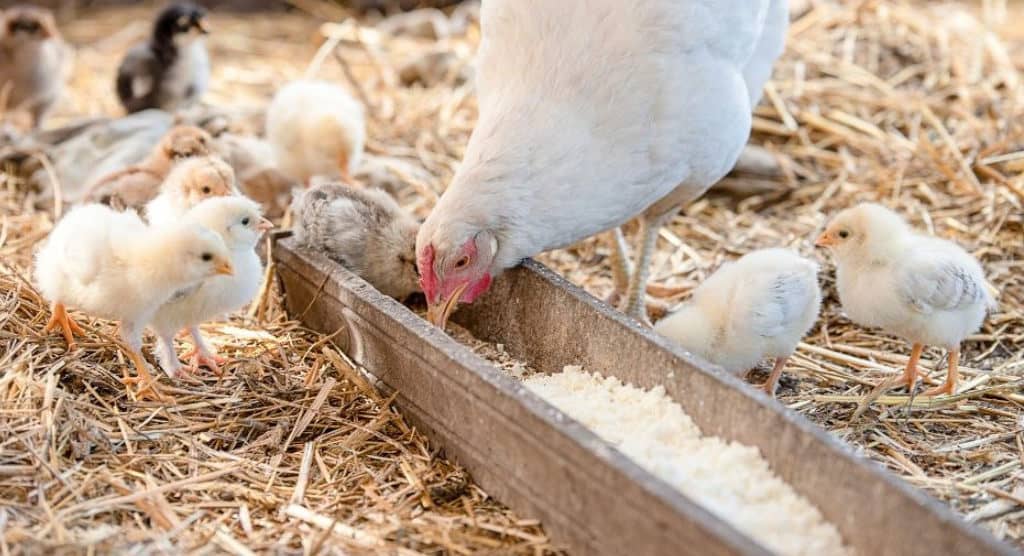
Oh, treats! Even chickens love to eat treats. You can spoil your hens, but don’t get carried away by its name. You should still limit giving treats to avoid interfering with the diet. Here are some organic foods that contain healthy vitamins and minerals.
- Pumpkins or pumpkin seeds
- Sunflower seeds
- Fruits like apples, coconut flesh, and raisins
- Whole grains like pasta and sprouts
Summary
Knowing what to feed chickens as they grow is optimal for chicken growth and development. Providing the proper nutritional needs for each age can prevent several health conditions. AAnd it can also prevent some issues during egg production.
Learn when to give starter feed, grower feed, and layer feed. Also, consider providing supplemental feed like calcium and grit. It will help with easier digestion and metabolism. But most importantly, supply ample clean, cool water to help regulate temperature.

Joseph Hudson has been raising chickens for over 15 years. In 2018, he completed the Agriculture & Natural Resources program at Mt. San Antonio College. He currently raises over 1400 chickens on his 7.5-hectare farm. He keeps sharing his experience on raising healthy and happy chickens on Chicken Scratch The Foundry.
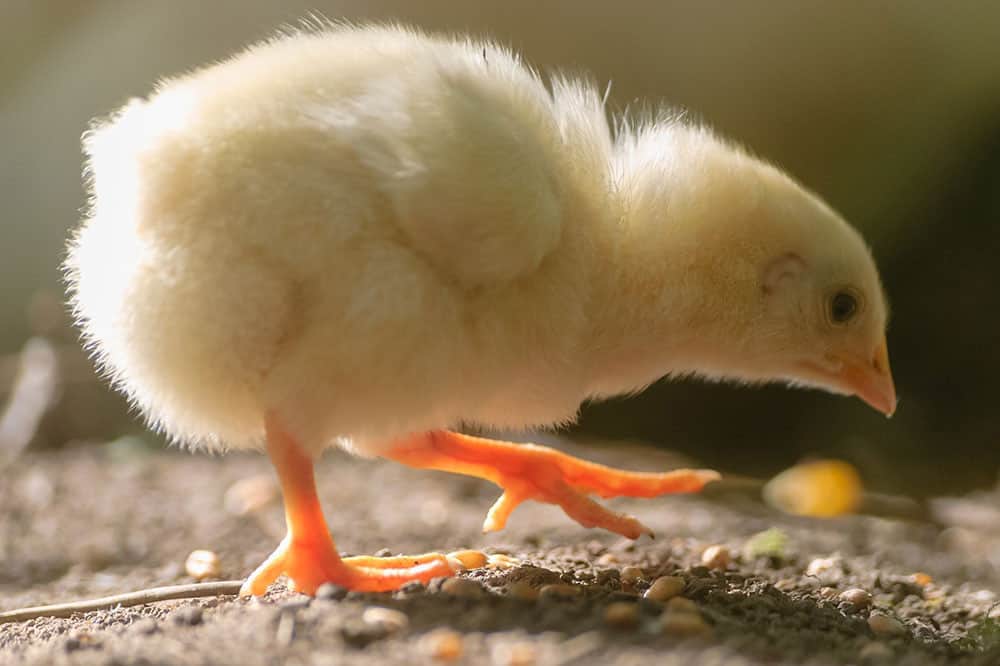
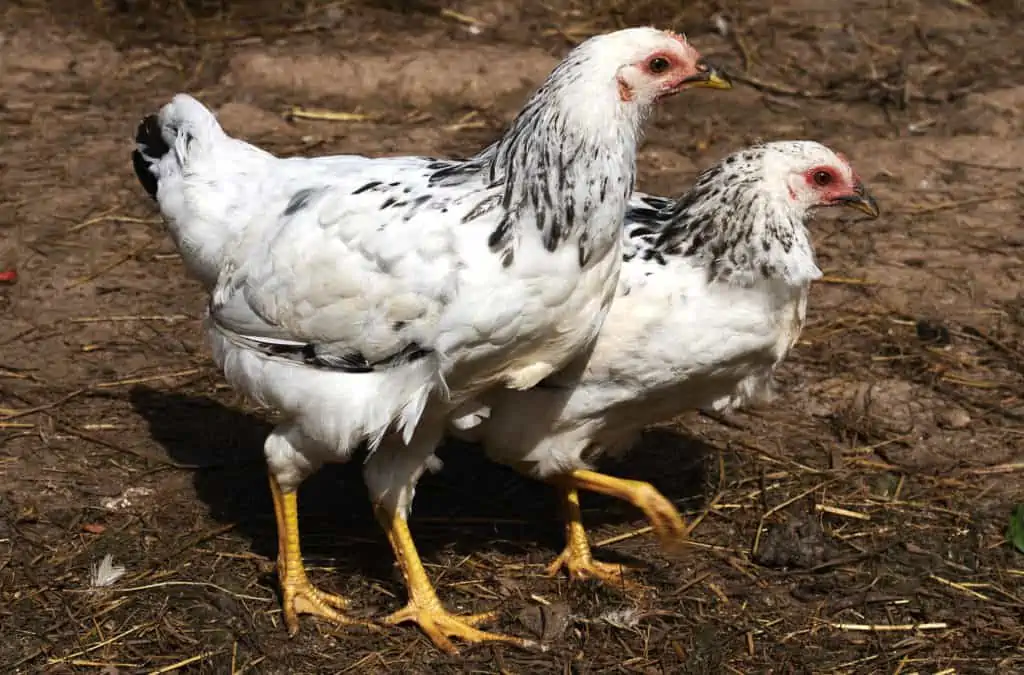
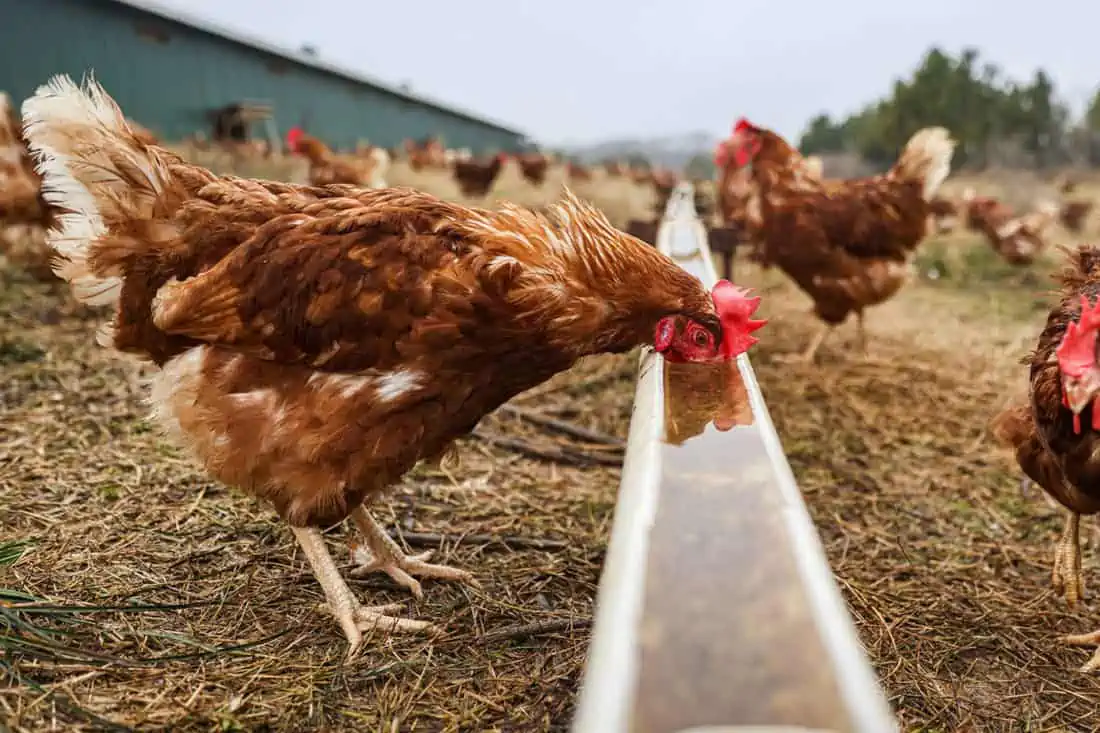







thank you for all this information. I have an issue with the feed from the feed stores, most ingredients are GMO and I’d rather not feed that to my chickens but organic feed is twice the price for half the product. I have recently been feeding my chickens a product called Thunderbird. Most of the ingredients are not the ones that are commonly GMO, not sure about the corn that’s in it. My chickens free range about 4-5 hours a day in the evenings when we are available to either watch them or able to check on them on a regular basis, I’ve had a neighbor’s hunting dog get loose and kill several of my chickens and ducks so I’m keenly aware of how quickly that happens. Is Thunderbird a complete food or is it a treat? I so don’t want to put them back on GMO feed.